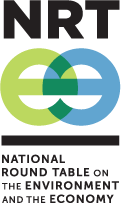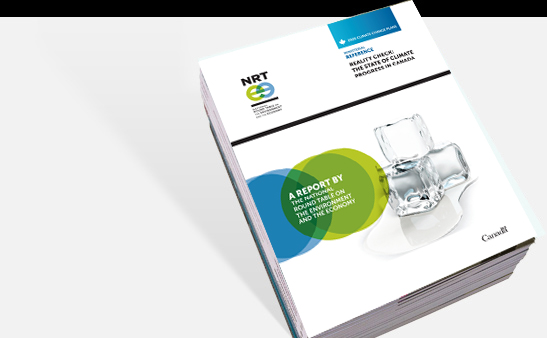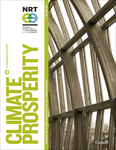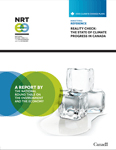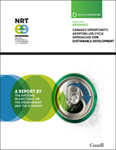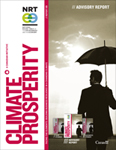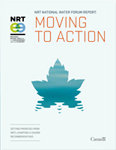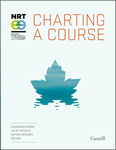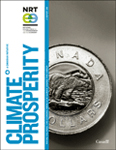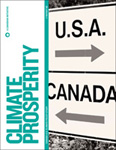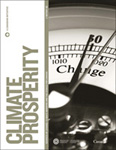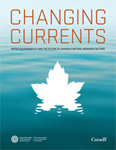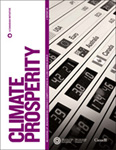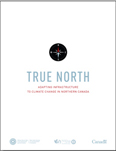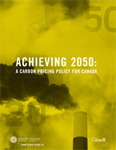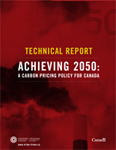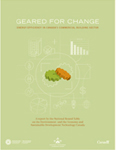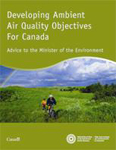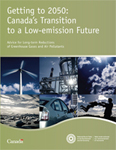News Release – June 16, 2003
Support rural Canadians to conserve Canada’s natural capital, new National Round Table report recommends
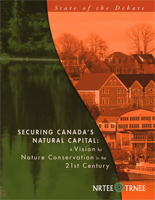 June 16, 2003 — Rural and Aboriginal communities should benefit economically when we ask them to be the caretakers of Canada’s natural capital while pursuing traditional resource extraction activities, the National Round Table on the Environment and the Economy recommends in a new report released today.
June 16, 2003 — Rural and Aboriginal communities should benefit economically when we ask them to be the caretakers of Canada’s natural capital while pursuing traditional resource extraction activities, the National Round Table on the Environment and the Economy recommends in a new report released today.
“Society has to ensure that conservation of natural capital on behalf of all Canadians brings social and economic benefits to the people on the front line,” said Terry Duguid, Chair of the Round Table’s Conservation of Natural Heritage Task Force.
Parks and protected areas are reservoirs of natural capital, including environmental services like clean water and pollination, and environmental goods such as lumber and DNA. They are the basic building blocks of conservation, but by themselves are not enough.
A practical conservation strategy would give rural and Aboriginal communities a say in management decisions, and compensate them for undertaking stewardship duties – if and when they forego some short-term economic development opportunities. To encourage Canadians to steward natural capital, Securing Canada’s Natural Capital recommends that the Federal Government:
Work with the tourism industry to develop a national sustainable tourism strategy to enhance the economic benefits to communities near protected areas.
Give Aboriginal peoples preferential access to business opportunities on the edges of protected areas that are in their traditional lands.
Provide accelerated capital cost tax allowances, and cost-sharing to farmers who invest in conservation equipment such as manure management facilities; and give premium agricultural support benefits to farmers who operate under an Environmental Farm Plan.
Re-align facets of our fiscal and policy regime to support rather than inhibit resource extraction industries voluntarily seeking to attain conservation objectives. Examples include
- Providing tax credits for research and development of improved environmental practices, and
- Removing provincial use-it-or-lose-it requirements when a corporation surrenders resource rights for conservation purposes.
“A long-term conservation strategy will only work if local communities buy in and support it. There is an indispensable role that the people of our rural communities could – and indeed must – play if we are to conserve natural capital, thus preserving the economic options of future generations,” said David J. McGuinty, President and CEO of the Round Table.
Among the report’s other recommendations:
- The Federal Government should allocate $250 million to start a National Conservation Fund to support conservation projects. Other players such as provincial governments and conservation NGOs should match the Federal contribution 3:1 to create a billion-dollar fund.
- The Federal government should create a national electronic biodiversity information network with standard classifications of terrestrial and aquatic species, a publicly accessible digital map and database of all conservation areas in Canada, and a nationally coordinated community monitoring network.
- Ottawa should complete a network of 35 Marine Protected Areas, marine conservation areas and marine wildlife areas by 2010.
- The Federal Government should allocate an additional $475 million for new National Parks and the protection of the ecological integrity of the National Parks system, and to expand the network of wildlife areas and bird sanctuaries.
Much of the conservation of natural capital should take place on our working landscapes where agricultural, logging and mining industries operate. While continuing economic development opportunities, we need to create buffer zones and connecting corridors in the working landscapes around parks and protected areas to adequately conserve our stocks of natural capital, including our biodiversity wealth, the report said.
“The ideas, patterns and medicines that are contained in the DNA of Canadian plants and animals ‘ our biodiversity capital ‘ are the economic resources that will fuel the next great economic era ‘ the Age of Bio-technology’, ” Mr. McGuinty said.
The realization that nature is valuable natural capital has created ‘ a new economic case for nature conservation,’ the report said.
The National Round Table on the Environment and the Economy was established in 1994. Its membership reflects a diversity of Canadian interests, including industry and environment groups. Appointed by the Prime Minister, the Round Table provides decision-makers with information supporting a sustainable environment and economy.
